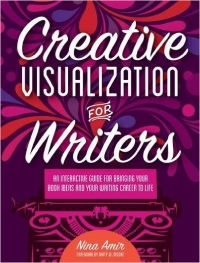 Nonfiction writers immerse themselves in facts and real-life events. Therefore, it’s easy to conclude that nonfiction writing isn’t work that feeds a writer’s soul.
Nonfiction writers immerse themselves in facts and real-life events. Therefore, it’s easy to conclude that nonfiction writing isn’t work that feeds a writer’s soul.
That’s far from the truth.
If you’ve been considering pursuing a career as a nonfiction writer, know this: Nonfiction writers possess a strong sense of mission and purpose. They know they can make a difference in the world with their words.
Plus, their published work positively and meaningfully impacts readers’ lives. This fact makes each written word a meal that nourishes the soul. Additionally, each published piece—an article, a book, a blog post—is another step toward fulfilling the writer’s purpose.
Indeed, nonfiction writers are guided by a sense of calling, mission, or purpose. Therefore, each piece they write is completed in partnership with the soul.
Struggling to Write
I’m a nonfiction writer through and through. I’ve been working in this field of publishing since 1982, when I graduated from college. I can tell you that there is a difference between writing in a way that feeds versus starves your soul.
I recently went through a period of feeling stuck. I rarely struggle to write, but I was, indeed, struggling. No matter the project, I felt distracted, filled with self-doubt, and worried about failure. And the words refused to come, or, if they did, they came in a stilted and disjointed form.
When it came to my nonfiction book projects, I suffered from what some would call writer’s block. I shared my writing challenge with a coach, and our conversation revealed the root of the problem.
I was focused on the end result of my work—what someone, like a literary agent, would think of it, whether it would be good enough to get published, and if my readers would judge me for my perspective. I wasn’t focused on the writing itself. Nor was I paying attention to what my soul was calling me to write.
Following My GPS
My coach suggested I recall what it was like when I wrote with ease, confidence, and joy. I remember when I first began working on book ideas and when I frequently submitted articles to magazines. At that time, I was less concerned about results.
Of course, I wanted my work to be published, but I felt passionate about my ideas, and that passion pushed me to write. I put hands on keyboard because I felt inspired and motivated. I began a project because something internal compelled me to do so.
I began my journey to authorship because I felt the topics about which I wanted to write were “on purpose” for me. My soul was guiding me, like a GPS, and I followed its directions. For that reason, the words simply flowed through me.
How I Starved My Soul
But for many years, I didn’t do that. I wrote what I thought would sell. I wrote what I was advised to write. I wrote what I was expected to write. And, in the process, I starved my soul.
The other projects—the ones my soul had directed me to write, were stored, unfinished (some even unstarted), in my computer. And when I tried to work on them, I felt uncomfortable, unable to collect my thoughts, and self-conscious. So I didn’t bother…and left my soul starving.
After such a long dry writing spell, I felt as if my writing flow had disappeared entirely. No wonder I felt creatively blocked.
How I Feed My Soul
 Taking my coach’s advice, I spent time visualizing writing as I had early in my career. I imagined feeling compelled to sit down and write. I saw my fingers flying across the keyboard as a flow of information, guidance, and words rushed into my head, through my body, and out my fingers. I felt my excitement and fulfillment for the topic.
Taking my coach’s advice, I spent time visualizing writing as I had early in my career. I imagined feeling compelled to sit down and write. I saw my fingers flying across the keyboard as a flow of information, guidance, and words rushed into my head, through my body, and out my fingers. I felt my excitement and fulfillment for the topic.
Before writing, I took five or ten minutes to meditate. My intention was simple: tap into my inner guidance system—my soul. I asked for guidance and information to flow to me so I would know what to write.
Then, I would begin to write.
At first, the words still trickled out. But the more consistently I used these practices, the stronger the flow became.
Writing became easy again…and purposeful. And each writing period fed my soul…and my writing.
Now, this is my daily soul-guided writing process.
Nonfiction Writing is a Calling
Most nonfiction writers feel compelled to write. Writing is a calling, not a vocation, for them.
A calling is an urge that can’t be ignored. For some, it’s a Divine nudge or the Still Small Voice constantly whispering in an ear. Sometimes it feels like a powerful magnet drawing you near or an urgent need that must be met.
Or it’s your soul asking to be fed.
As a nonfiction writer, when you heed the calling and write, you feed your soul. And you express at a soul level.
Nonfiction Writing Involves Contribution
Typically, a calling or mission involves contribution. And most nonfiction writers—I dare say, all—have a desire to give or be of service in some way.
Even a news reporter believes the stories he writes contribute. After all, they offer essential facts about local, national, or global issues. And the magazine or newspaper’s audience benefits from knowing these details.
Whether you write about environmentalism, spirituality, health, international relations, parenting, or some other topic, your written work informs, educates, inspires, and motivates. It also helps readers form opinions, make decisions, and take action. As such, it is of service to others.
When you give to the world in some way via your writing, you fulfill your mission. Each word you write is a tasty morsel for your soul and contributes to your readers.
Nonfiction Writing is Personal
While many nonfiction writers focus on interviews, global issues, or research, others dig deep within to write about their lives. For instance, memoirists share their life experiences with others. This is a very personal type of writing that often stems from a soul’s desire to find meaning in life events. While enormously healing to write, a memoir can heal readers as well.
The essay offers another way to write from the heart and soul. These beautifully crafted personal pieces are based on the writer’s experiences but have a universal story or appeal.
Still, other nonfiction writers draw on their professional or life experiences. They compose how-to or prescriptive nonfiction articles or books. Some offer expertise and advice on their personal blogs, yet their souls direct them to give back in this manner.
All these writing forms can feel enormously fulfilling. That’s not surprising since the writing contributes to others. And the work answers a calling and fulfills a purpose.
Nonfiction Writing is Filled with Soul
Excellent nonfiction writing comes from the soul. It’s common for someone to say a writer has put heart and soul into a piece of work. And they have.
But the soul and the writer work together. The soul feeds the writer ideas and words. The writer turns that soul food into words shared with the world, which feeds the soul. The work feeds readers’ souls, too.
Does your writing projects feed your soul? Tell me in a comment below. And please share this post with a writer you know.
 Would you like to write and publish nonfiction work, like articles, blog posts, books, or reports…and become a successful author? Join the Nonfiction Writers’ University. Get the basic education you need and the Author Coaching to help you succeed as a nonfiction writer. Enjoy a 30-day trial membership for only $1. If you’ve felt the desire to get coached and be supported as you pursue authorship, this program is for you.
Would you like to write and publish nonfiction work, like articles, blog posts, books, or reports…and become a successful author? Join the Nonfiction Writers’ University. Get the basic education you need and the Author Coaching to help you succeed as a nonfiction writer. Enjoy a 30-day trial membership for only $1. If you’ve felt the desire to get coached and be supported as you pursue authorship, this program is for you.
Renee Michaels says
This was brilliant and exactly what I needed to hear. When was there a time, that when you wrote you could feel joy just for the sake of writing? Yes, yes. 16 yrs old, writing poetry.
Thank you~
Nina Amir says
Thanks, Renee! I’m so glad the post was what you needed.
I have actually been writing poetry again. Someone else suggested that I do this. I don’t do it every day…but about 3x per week! It helps.
Deborah Jean Nielsen says
With my passion and purpose to write I have immersed myself into learning details about writing and creating a YouTube series, building social media, editing.. Absolutely the writing has to come from my center, my heart and soul.
Being a circular thinker, not linear, I began to feel boxed in, with so many details and to do lists, it was as if I was locked in a cell. I had to walk away and spend more time in nature and brain storming about my topics and themes. After coming back to my center; I realized I need to apply my sense of playfulness and creativity to these new arenas. I wish I could just hop on a stage and have a big audience. My reframe is I can think of social media and YouTube as virtual stages where I can build my audience and create.
Nina Amir says
Hi, Deborah! YES! You can reach people all around the globe right now virtually. And it’s easier…doesn’t require travel…and is fun!
Talk to Walle says
It is important that non-fiction writers do not lose themselves in facts and evidence but also get something for themselves.
Stacey Campos says
At that point, when it seems like it couldn’t get any harder, we take a full breath and offer our words with the world. So regularly that world can be not exactly kind. To confront the wild existence of composing, we need to set aside effort to take care of your author’s spirit.
https://wikipagecreation.services/